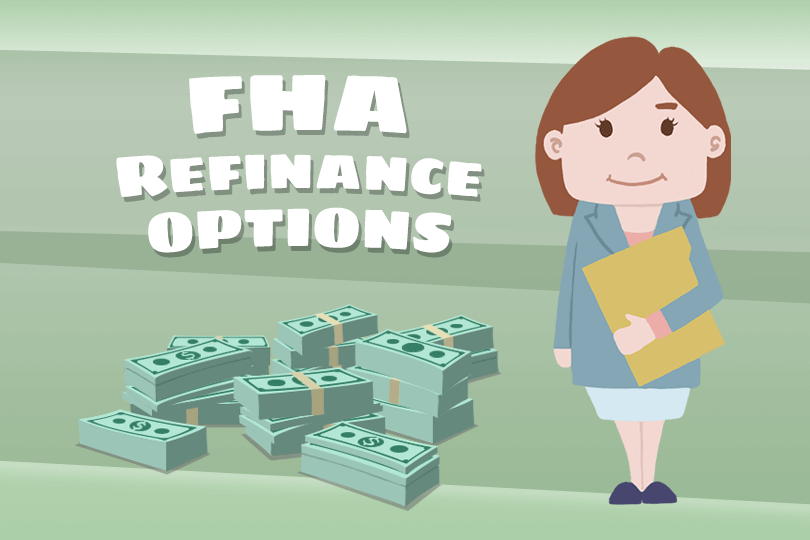Cash-Out Refinance: The Pros and Cons
January 16, 2021
What Is It?
A cash-out refinance replaces your current mortgage for a new one with a principal that is higher than the amount you owe, which allows you to keep the difference in cash. You may also be able to lower your interest rate or adjust the length of your loan term, but the primary purpose of a cash-out refi is to use your home equity to get cash in hand.
The Pros
- Immediate cash in hand: A cash-out refi’s main benefit is that it converts your home equity into liquid assets. You can therefore use the money you have available to fund any number of investments, whether it is home renovations or medical expenses. If you plan out how to use the equity in a responsible way, you can increase the value of your home and build equity in the long run.
- Consolidation of debt: Many borrowers use a cash-out refinance to combine all their high-interest loans, such as student loans and credit card debt, they carry in other places into a single mortgage. This helps to manage finances with a single monthly payment, and mortgages traditionally have lower interest rates compared to other personal loans. Keep in mind, however, that your house will become collateral.
- Tax credits: When used for home improvements, the interest on a cash-out refinance is tax deductible. If used any other way, the interest is tax-deductible up to $50,000 for an individual or $100,000 for a couple. You always should check with your tax advisor for current deductibility and updated laws.
- Higher interest rates: Cash-out refinances are always riskier than other types of refinances because you are borrowing more than what you already owe on the house. And with greater risk comes a higher interest rate.
- Extra costs: Like any other refinance, a cash-out refi requires the borrower to pay closing costs. There is also a second appraisal required for this option, which is a cost you will need to take on. Additionally, borrowers need to pay interest on the extra cash that comes with such a refinance, adding to the cost of the loan.
- Higher risk: The more equity you liquidate in your home, the more risk you take on if the property values decrease. Depending on what you need cash for, it might not be the best idea to drain the equity you have built on your house.
If you decide to go ahead with a cash-out refinance, the amount of additional cash you can borrow will vary based on several factors. The amount of money that you can borrow depends on the amount of equity that has been built up in the home's value. For example, to be eligible for an FHA cash-out refinance, borrowers will need at least 20 percent equity in the property based on a new appraisal.
If you have immediate and important expenses coming up, it may be worth looking into using some of the equity in your home. Talk to your loan officer to see of a cash-out refinance is the right step for you.
------------------------------
RELATED VIDEOS:
Obama Mortgage Is the Home Affordable Program
Principal Payments and Your FHA Loan
Living in a Single Family Home

FHA Loan Articles
May 14, 2025When you buy a home with an FHA mortgage, you must pay for both mortgage insurance and insurance to protect your property while paying on the loan. There are important nuances to these insurance policies to know before you start. What's the difference between insurance against water damage and flood insurance? That's just one example of the "hidden" expenses of buying your new home to budget for.
May 13, 2025Buying a home with an FHA mortgage means you'll need to know the FHA guidelines about the types of properties you can purchase with an FHA single-family home loan for residential purposes. How well do you understand these rules? Are you truly ready to start house hunting? We examine some key aspects of the process.
May 12, 2025FHA single-family home loans require a minimum 3.5% down payment for typical transactions. Saving for this requires planning and dedication, but it’s not impossible to save enough to make the down payment. How do people typically budget and save for this? Your financial needs and goals will play a big role in how much you decide to set aside for your new home, but here are some options to think about...
April 30, 2025 In a previous post, we discussed why FHA borrowers should carefully consider whether paying for discount points truly serves their best interests, focusing on factors like short-term homeownership, opportunity cost, FHA mortgage insurance, and the prevailing interest rate environment. Discount points are an option for borrowers willing to pay a fee to lower the interest rate by a set amount. This is not right for all borrowers, and you don't want to pay for points you won't benefit from during the loan term.
April 29, 2025Are you considering buying a home with an FHA loan? You'll likely talk to your participating lender about FHA loan "discount points" – fees you pay upfront for a lower interest rate on your mortgage. The idea behind discount points is a straightforward exchange: you spend money today to reduce your interest rate. Typically, one point equals one percent of your total FHA loan. In return, your interest rate might decrease by an amount you and the lender agree upon.







